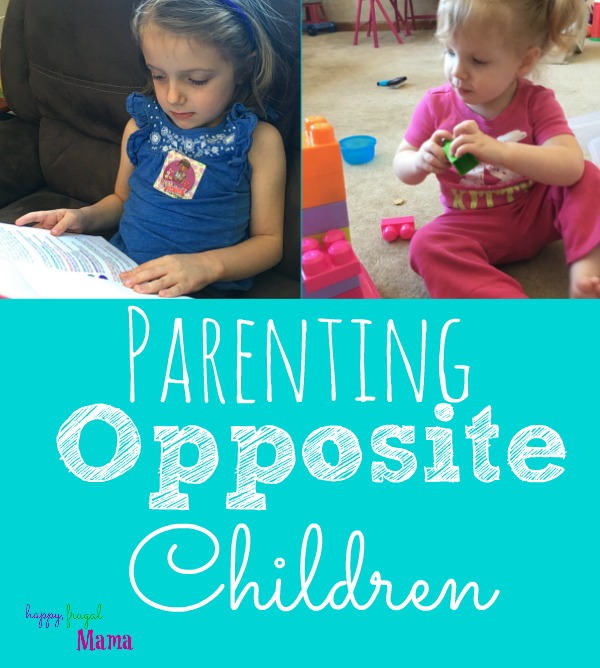My first child was a pretty good nurser as a baby. She started sleeping from 8pm to about 5:30am then back down for two more hours at two months. She never minded long car trips. She was pretty easy going until she hit three years old. And even then, she wasn’t too bad. The “terrible twos” weren’t that hard with her. She very rarely put things in her mouth, never drawed on walls, never ran away from me in public, etc.
My second child? Well. She is the polar opposite. Horrible nurser to the point that we switched to formula. Was up 8-12 times a night until she was about a year old and after that, she was still up at least once a night. She hated being in the car for longer than 20 minutes. At just before two years old, “no” and “mine” became her favorite words. You couldn’t leave her alone to go to the bathroom or get dressed or swap the laundry because she would somehow find a pen and draw all over the wall or a crayon and draw on the TV. Everything went into her mouth. Everything!
Parenting opposite children can be quite a challenge, especially if your first was really easy. It’s like you are learning how to parent all over again with each kid, but especially if those kids are very different from each other. I’m still learning as I go but here are some things I have found to make it a little easier.

Expect everything to be different
As soon as you change your expectations, it gets a little easier. If you are no longer expecting kid #2 to react and act like kid #1, your stress level will go down. You have to change your mindset to one of “I am learning this all over again” instead of “I’ve already done this before, why is it so hard?!” Trust me. I’m still learning this too. It’s a hard thing to learn but it can make a huge difference in how you approach parenting.
Learn each kid’s love language
I know some people who don’t put a lot of stock into love languages. I think they are fairly important. They are important not just in a romantic relationship but also when it comes to relating to your kids. When your kids are opposite, it’s likely that their love languages are different. If your kids are under 4, it might be hard to learn their love languages. They are still developing. But with older children, you probably know if one feels loved when you spend time with them and one feels more loved when you snuggle with them. Or maybe one child really likes to get little gifts and the other really needs to hear praise and lovey words.
Likely at least one kid is going to push you out of your comfort zone a bit. That’s normal. It’s just important to find the ways your child feels loved the most and show love to them that way. When your children are opposite, they need to know that you will meet them where they are and love them for them. Learning their love languages is one of the best ways to do that.
Change the rules
Yes, there are some rules that are the same for all children. No running in the house and no dessert until you eat your dinner are definitely house rules. However, other rules might need to different based on each kid. You might have one kid that is very responsible and ready to drive at 16. Another child may not be ready for that responsibility until they are 17. Bedtimes may be different. Ages they are allowed to do certain things may be different. It may seem unfair on the surface but not all rules make sense for all children. It’s okay to adjust rules and ways of doing things based on each child.
Be flexible
Being a mom certainly tests your flexibility, doesn’t it? You have to be flexible with your time and commitments. You have to learn to let some things go and be firm on other things. Parenting opposite children really tests that flexibility. You have to learn to not hold so firm to “well, they should be doing this developmental thing.” Remember that those things are just guidelines, not hard and firm rules.
One of the most important things to remember when parenting opposite children is to treat each child as an individual. It can be so, so easy to think what worked with your first child is going to work with your next. That’s not likely to be true. Remembering that your kids are different people with different ways of thinking, acting, and developing will really help you as you try to parent two totally opposite kids.





Leave a Reply